(Video by Xinhua Reporters Wei Ying, Zhou Saang)
"I think in the days ahead we're gonna see some bigger numbers come out. I think it's going to cause a lot more volatility in the markets," said Colmar in an interview with Xinhua.
NEW YORK, March 7 (Xinhua) -- The outbreak of novel coronavirus is going to cause "a lot more volatility" in the U.S. financial markets in the coming days, said a senior strategist with macroeconomic research body MRB Partners on Friday.
Investors could not fully assess the impact of COVID-19 on the United States as infections have been underreported due to a lack of testing and the health care sector has not provided credible solutions, said Phillip Colmar, managing partner on global strategy with MRB Partners.
"I think in the days ahead we're gonna see some bigger numbers come out. I think it's going to cause a lot more volatility in the markets," said Colmar in an interview with Xinhua.
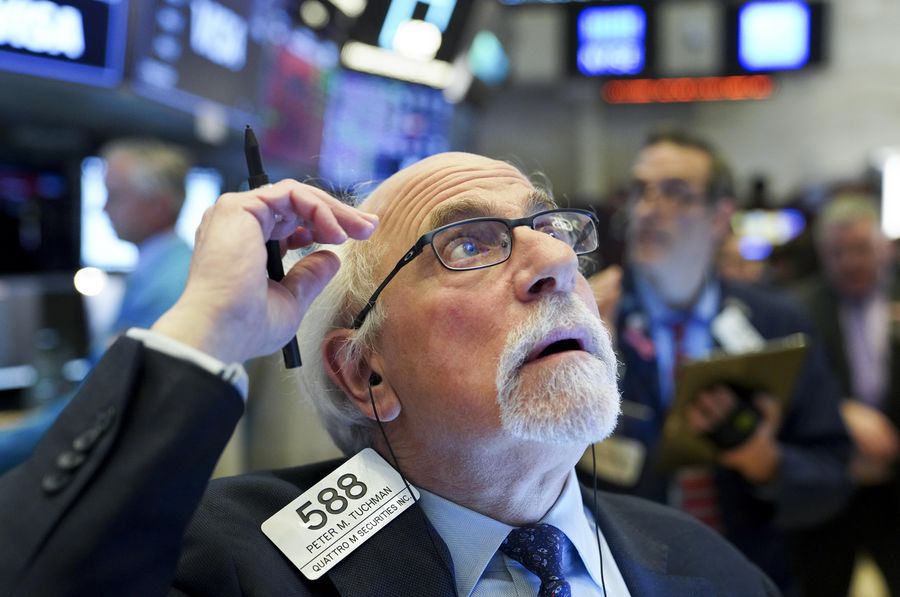
A trader works at New York Stock Exchange in New York, the United States, Feb. 27, 2020. U.S. stocks closed sharply lower on Feb. 27 as investors fled the stocks market and flocked into safe-haven assets. (Xinhua/Wang Ying)
The recent cut of interest rates by the U.S. Federal Reserve was not the right tool to deal with the epidemic and fiscal money should be tapped to cover the costs of testing for infections, said Colmar.
He added that the markets have tried to capture the impact of novel coronavirus, but the problem is that there is not a clear resolution and experts could not look through the valley at this point.
"I think this is the real risk of the markets right now. We're gonna see a lot more volatility in the markets" until the right tools are used to assess the degree of the damage, ring-fence the novel coronavirus and come up with credible solutions, he said.
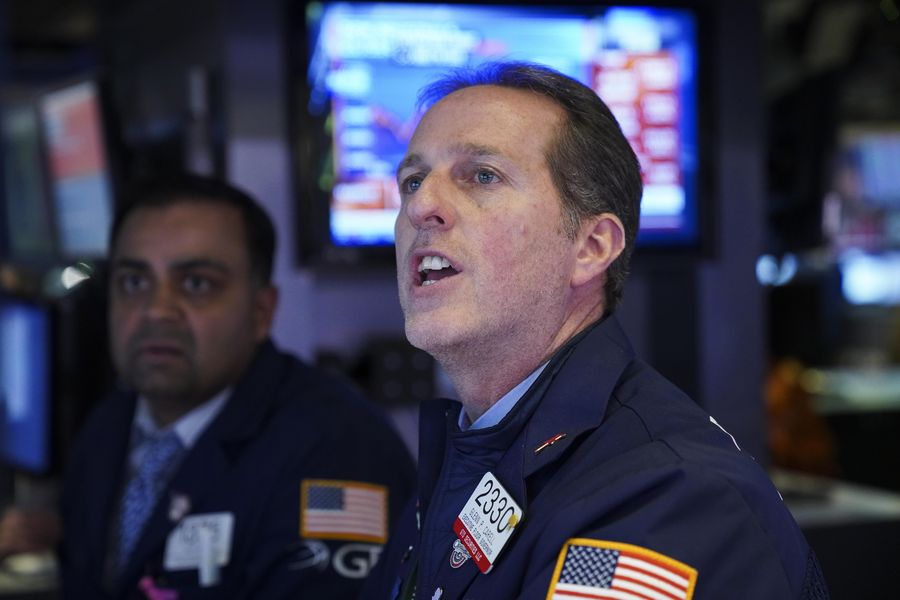
Traders work at New York Stock Exchange in New York, the United States, Feb. 27, 2020. (Xinhua/Wang Ying)
The CBOE Volatility Index, widely considered the best fear gauge in the stock market, hit 54.39 points on Friday, reaching the highest level since the end of 2008.
The continuous growth in the U.S. stock markets in the beginning of 2020 was based on multiple expansions and required corporate earnings to catch up slowly this year, said Colmar.
The air pockets in the stock markets could lead to volatility because of COVID-19, U.S. politics or something else and overbuying needed to be unwound, Colmar added.
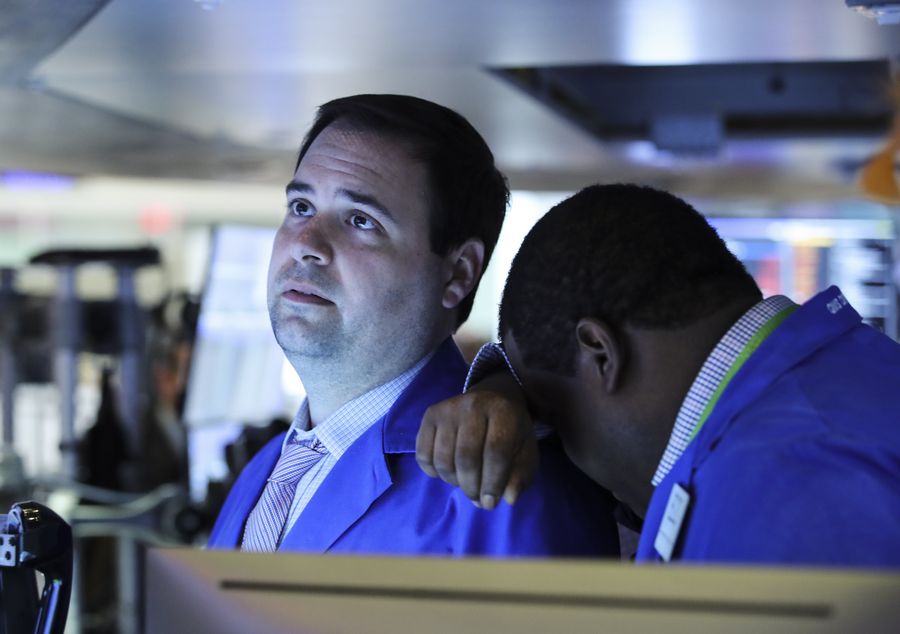
Traders work at New York Stock Exchange in New York, the United States, Feb. 27, 2020. (Xinhua/Wang Ying)
"Certainly the equities, you know, we saw an air pocket in the market and they needed to come out. Much of that came out at this point," said Colmar.
Colmar said the shakedowns on this volatility would create more opportunities for longer-term investors and value could be found in the health care and household durables sectors.
The novel coronavirus would hit economic growth in the first half this year and growth would come back in the second half of 2020, Colmar said.
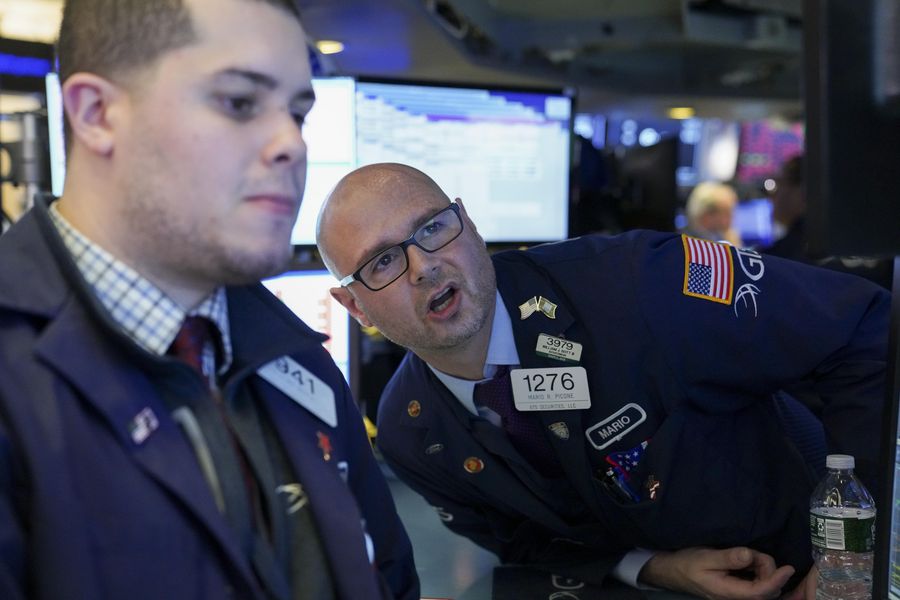
Traders work at New York Stock Exchange in New York, the United States, Feb. 27, 2020. (Xinhua/Wang Ying)
Colmar stressed that the impact of COVID-19 on earnings of S&P 500 Index member companies would depend on "How swiftly we do counter measures? How we can reverse this? What is the degree of the damage of it?"
There are some uncertainties associated with the impact of novel coronavirus and "we still think that you can resolve this in the short term," Colmar said.
Colmar did not rule out that the U.S. stock markets could drop over 20 percent and fall into a bear market technically, but he said that a sustained bear market is hard to imagine.
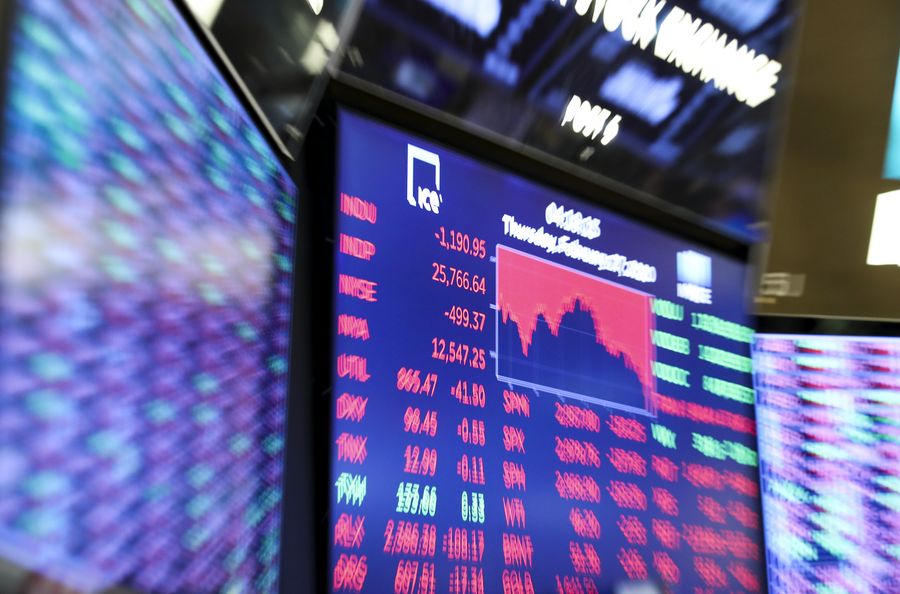
An electronic screen shows the trading data at the New York Stock Exchange in New York, the United States, Feb. 27, 2020. (Xinhua/Wang Ying)
Statistics show, as of Friday, that the Dow Jones Industrial Average, S&P 500 Index and Nasdaq Composite Index all shed more than 12 percent from their record highs set in February.
Colmar said it is hard to imagine that the epidemic itself could cause a recession.
However, he added that the panic associated with the measures against COVID-19 could lead to a recession through contagion mechanisms from home and abroad.
(Article by Xinhua writers Liu Yanan, Zhou Saang, Wei Ying) ■



